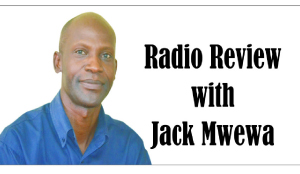 THREE words were read and pronounced differently on main news bulletins by some newscasters across the radio stations last week.
THREE words were read and pronounced differently on main news bulletins by some newscasters across the radio stations last week.
The story of SECESSION came to the fore following a verbal tug-of-war involving people from Southern Province and Government over the former’s alleged threats to secede from Zambia.
Boy or boy! You should have heard how that word was ‘assaulted’ in pronunciation by our newscasters on some radio stations. We heard them read something like ‘succeed’.
Secede is a VERB (when used without object), seceding, seceded (to mean withdraw formally from an alliance, federation, association, as from a political union, a religious organisation and others).
Secede is correctly pronounced ‘si-seed’ which is different from SUCCEED pronounced ‘suh k-seed’, obviously, the two words are as different in meaning as in their sound.
The secession talk is not new in Zambia as we have had the issue of Barotseland from as far back as the 1960s. Therefore, newscasters have been reading out that particular word that long.
One fails to understand why the word should be mispronounced by our broadcasters today.
The other word that gave some of our newscasters problems in pronunciation was LOAD-SHEDDING which was wrongly pronounced as ROAD-SHEDDING.
Load-shedding can be described as (energy utilities’ method of reducing demand (load) on the energy generation system by temporarily switching off distribution of energy to different geographical areas.
Load can also be loosely translated as ‘weight’ and in this case to mean the weight of power or energy which is rationed. It can, therefore, never be ROAD.
Then there was a story of former Guinean military ruler Moussa Dadis Camara in the news last week as having been INDICTED for his role in the 2009 massacre in that country.
One follower of this column alerted us of how a lady newscaster on one private radio station had difficulties in pronouncing INDICTED, that she tried reading it several times. She pronounced it as INDIKT.
Indict is pronounced ‘in-dahyt’ meaning to bring a formal accusation against, as a means of bringing to trial, to charge with an offence or crime; accuse of wrongdoing, castigate and criticise.
There is no need for news readers to bite tongues or embarrass themselves failing to pronounce words that can even be checked out on Internet with audio sounds.
Here is what one of Zambia’s accomplished news casters BEN KANGWA said about pronunciations.
“Back in the day, I was fortunate to be coached by a group of professional broadcasters in general broadcasting and in news reading.
My mentors included Charles Mando, Mann Sichalwe, Joseph Kuluneta, Harold Besa, Peter Mweemba, Kenneth Maduma and my evergreen and all-weather brothers Matteo Phiri and Mannasseh Phiri.
‘Hands-on’ training was all about being in the newsroom as the news was being compiled or prepared one hour or so before broadcast time.
While in the newsroom at this time, I was required to make sure I got familiar with new words and names – how to pronounce them.
If I could not get any assistance in the newsroom, I was required to seek assistance outside the broadcast house from friends that were familiar with English and local names or indeed from foreign embassies based in Lusaka if the words and names were in a foreign language.
Mispronouncing of local and foreign names was the worst thing a worthy newscaster could do. As a way to avoid mistakes, I was also encouraged to write “pronouncers” in the news stories to ensure that the words or names are said right.
The caster would ask how the word or name is pronounced and literally write it the way he/she would say it. Call it phonetic sound!
Going on the air and sounding professional was the next step. With the complete news in my hands, I would loudly read the news as I got out of the newsroom all the way into the corridor leading to the news-booth.
Once I got in the news-booth, I would continue reading aloud until a minute or two before “cue” time at 07:00 or 13:15 hours as the case might be.
Meanwhile, as the news was being read to the entire nation and beyond, it was simultaneously being recorded in the control room for future reference during staff weekly production meetings.
Feedback from these meetings would enable me appreciate the positives I would have made in my news reading and also made me aware of how I could better my news reading.
Other newscasters who joined later followed suit and it would be folly of me not to appreciate newscasters such as Maureen Nkandu, Margaret (Zimba) Phiri, Dora Siliya, Margaret Chimanse and Doris Mulenga who during their time made news worth listening to.
There is no magic to good news reading. It is a question of being sober, being in the newsroom well ahead of time, being part of the news preparation team, checking on spellings, names and finding out how best to pronounce them, constant rehearsing of the news and, most importantly, understanding what you are reading.”
Stay tuned, don’t touch that dial!
–jackmwewa@gmail.com, 0955115777






